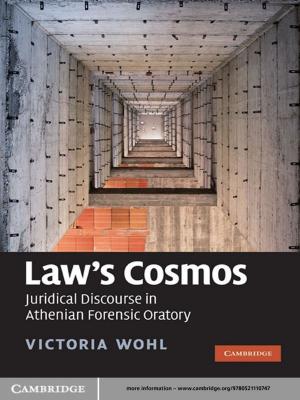International Commercial Arbitration
Different Forms and their Features
Nonfiction, Reference & Language, Law, Conflict of Laws, Arbitration, Negotiation, & Mediation| Author: | ISBN: | 9781107327085 | |
| Publisher: | Cambridge University Press | Publication: | March 14, 2013 |
| Imprint: | Cambridge University Press | Language: | English |
| Author: | |
| ISBN: | 9781107327085 |
| Publisher: | Cambridge University Press |
| Publication: | March 14, 2013 |
| Imprint: | Cambridge University Press |
| Language: | English |
Arbitration clauses in international commercial contracts are often reused from existing contracts. By so doing, the parties choose to apply, for example, either ad hoc or institutional arbitration and the UNCITRAL, ICC, LCIA, SCC, Swiss or other arbitration rules without necessarily being aware of the consequences. Moreover, parties often assume that an arbitration clause has the effect of excluding any kind of interference from a court of law and of rendering any but the chosen law redundant. This book highlights the specific features of various forms of arbitration and enables lawyers to make informed choices when drafting arbitration clauses. Chapters explain the framework for arbitration, its relationship with national law, and the features of the main arbitration institutions in Europe. The book also highlights new trends in other parts of the world that may have repercussions on the theory of international arbitration.
Arbitration clauses in international commercial contracts are often reused from existing contracts. By so doing, the parties choose to apply, for example, either ad hoc or institutional arbitration and the UNCITRAL, ICC, LCIA, SCC, Swiss or other arbitration rules without necessarily being aware of the consequences. Moreover, parties often assume that an arbitration clause has the effect of excluding any kind of interference from a court of law and of rendering any but the chosen law redundant. This book highlights the specific features of various forms of arbitration and enables lawyers to make informed choices when drafting arbitration clauses. Chapters explain the framework for arbitration, its relationship with national law, and the features of the main arbitration institutions in Europe. The book also highlights new trends in other parts of the world that may have repercussions on the theory of international arbitration.















